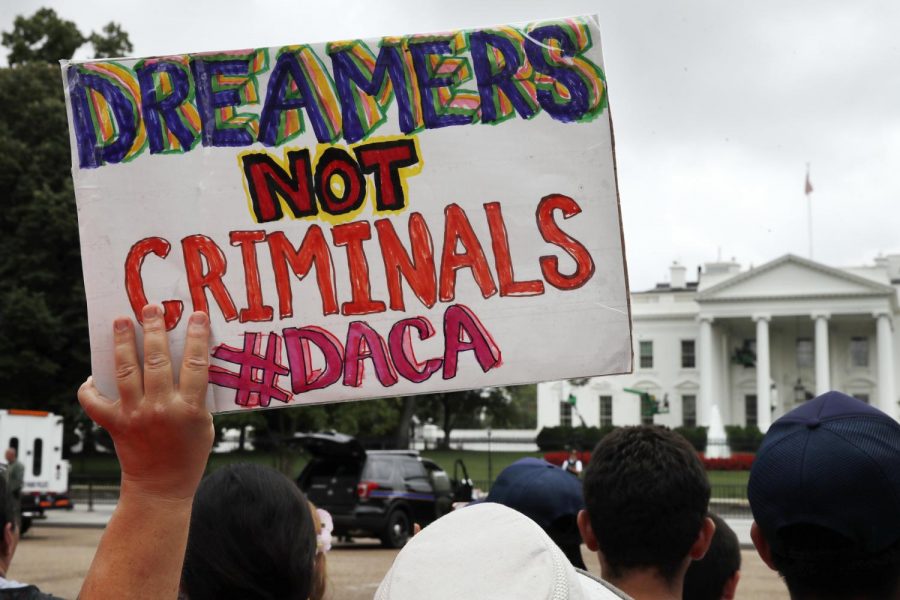The DACA Crisis
Supporters of the DACA program rally in front of the White House.
September 26, 2017
Nearly 800,000 young immigrants in the United States face the possibility of deportation under the undetermined future of the Deferred Action for Childhood Arrivals (DACA) program. On Tuesday, September 5, the administration under President Donald Trump announced its plan to end the DACA program in six months if Congress failed to find a solution. On the following Wednesday, President Trump discussed immigration with Democratic leaders, but the outcome of this controversial situation remains unclear (CNN.com).
The DACA program was a presidential policy formed by President Barack Obama in 2012. It protects undocumented immigrant minors from deportation and allows them to study and work in the United States for a certain period of time (foxnews.com). These young immigrants have been called Dreamers, which refers to the 2001 act that granted legal status to those who attended college or joined the military. While Dreamers under the DACA program are protected from displacement, they are not given official legal status.
President Trump’s stance on the matter is unclear. During his campaign, he stated his desire to end the program. Yet, after the administration’s announcement of its six month delay, he offered support to the Dreamers, asking the public why they wanted to deport “good, educated and accomplished young people who have jobs, some serving in the military” through Twitter.
Congress also remains divided on DACA. Democratic representatives blame President Trump for the controversy, while Republicans blame former President Obama for creating the situation (foxnews.com). Some deals have been proposed, however a final compromise is yet to be reached.
The public has opposing sides as well. Opponents of the DACA program argue that the policy itself is unconstitutional, and undocumented immigrants take away job opportunities for American citizens. Supporters of the Dreamers say the economy will slow if these jobs are taken away from deported immigrants, and placing them in a home country which they have never known would be cruel (theskimm.com). Social media has played a large role during this crisis, with hashtags of support such as #defendDACA trending.
When asked about her opinion of the DACA controversy, Shifa Mirza (10) responded, “I think the kids of DACA should be allowed to stay in the United States. They aren’t responsible for their illegal status, and sending them back to an unknown country would be terrible. But I also think that any decision Congress makes will always have some backlash.” While the ultimate outcome is unclear, updates are sure to follow during the next suspenseful six months.






































